When it comes to economics, how is Anthony Albanese like Shane Warne?
Is there a method to Labor’s seeming madness of focusing on its economic record? And why does Anthony Albanese’s deputy think the Opposition Leader is like Australian cricketer Shane Warne, asks John Rolfe.
Opinion
Don't miss out on the headlines from Opinion. Followed categories will be added to My News.
The economy: not exactly the subject that springs to mind when you think about Labor’s strong suits. The Coalition has a 15 percentage-point lead over Labor in the better economic manager stakes, according to a poll in The Guardian.
Yet that hasn’t stopped Anthony Albanese and the Opposition frontbench from hammering away on it lately.
Over two consecutive Question Times in the middle of the most recent parliamentary fortnight, 13 of the 15 questions Labor hit the Morrison government on were about the economy.
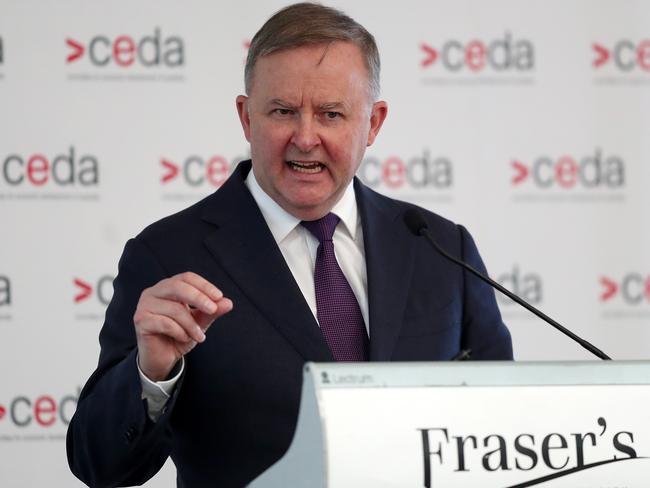
To give you a bit of flavour, the 13th, asked by Albo, went as follows: “Yesterday in the parliament, the Prime Minister shut down a proposed debate on the economy and organised an additional question to himself so that only he could talk about the economy.
“Is that because the Prime Minister only wants to listen to himself?
“Will the Prime Minister agree to a debate on the economy today, or doesn’t he have the confidence in his own economic management?”
MORE OPINION
This isn’t racism — it’s the Far Left at its worst
Why we must listen to the mothers of dead soldiers
Brexit chaos should revive Australia’s republic debate
Scott Morrison replied: “When the Labor Party can confirm what their actual policies are, maybe that’s when they might want to start asking those questions.”
Fair point, PM, and one I’ll return to.
Whether Albo would have won such a debate is, well, debatable.
Yes, the rates of wage rises and economic growth are too low, but the PM has delivered tax relief, with more on the way, while the budget is in balance for the first time in a decade.
So why isn’t the Opposition instead banging on about areas people believe Labor is actually better at, such as health, education or aged care?
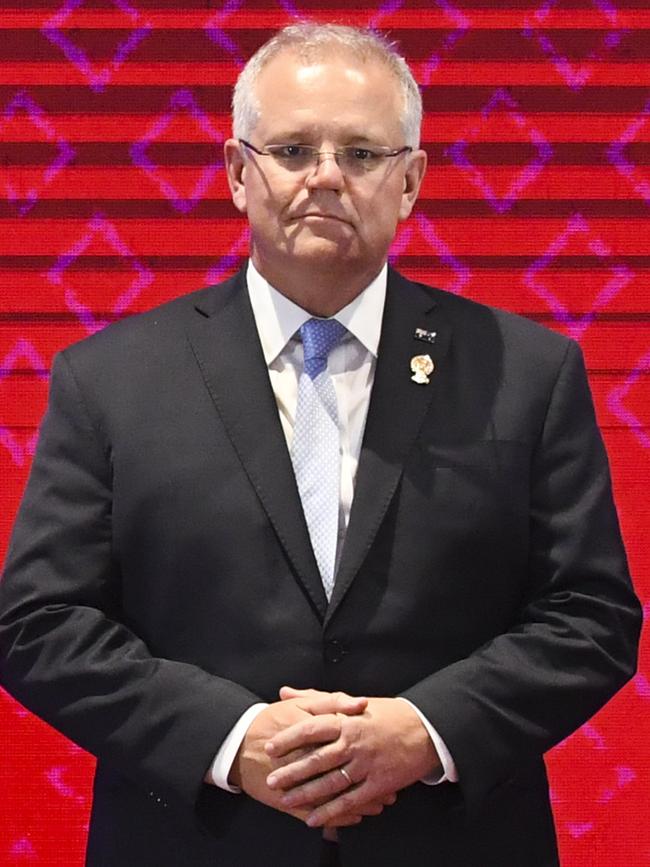
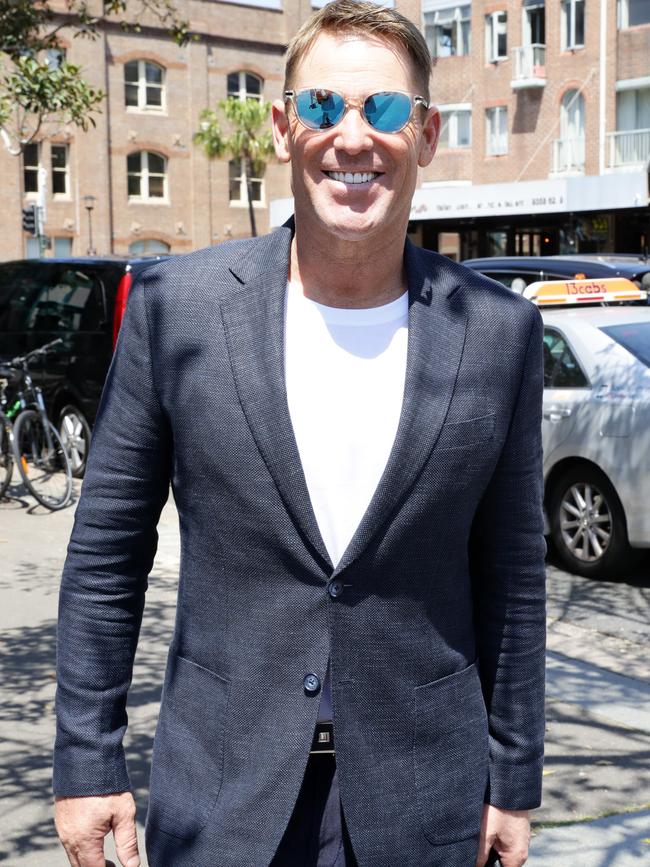
It’s a question I recently put to Albo’s deputy Richard Marles.
He began his answer by telling me who he thought were the three most outstanding sportspeople in his lifetime.
They were Tiger Woods, AFL great Gary Ablett Sr (Marles is from Geelong) and Shane Warne.
I agreed with Marles that at his peak Warnie was compulsory viewing for sports fans.
No one wanted to miss a batsman being flummoxed by a flipper or bowled around his legs.
But as Marles pointed out, Warnie did not deploy those deliveries often. Rather, his strategy was built around perfectly executing his stock leg-break over and over.
The Opposition needed to be just as monotonous on the economy, he said. Being so was a precondition to earning the right to have voters consider Labor as an alternative government.
As the PM said in his retort to Albo’s question, Labor will need to work out what its economic policies are, too.
While cricket fans were content to wait for a flipper, zooter or wrong ’un, how long will the public and those within the party be prepared to wait to see the Opposition Leader’s new signature deliveries?
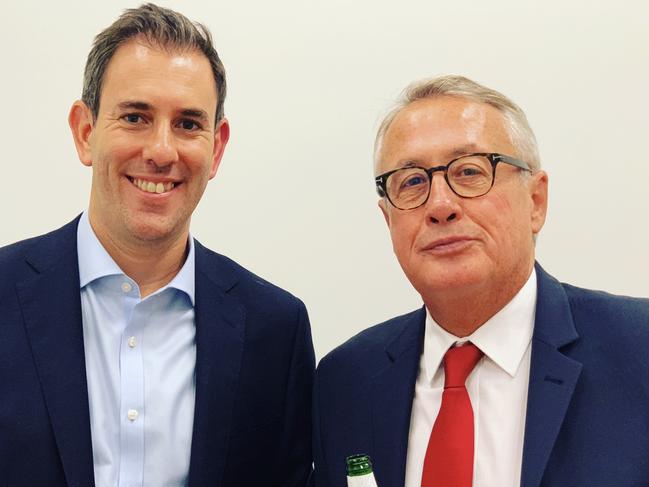
Not everyone in Labor is convinced they need many, including national president Wayne Swan.
Analysing May’s shock loss, the former Treasurer said it was “not a massive defeat … we are well positioned for the next election. Should we have won the election? Yes we should have.”
His former media adviser turned chief of staff, Jim Chalmers, is now Shadow Treasurer.
Chalmers is the only member of Labor’s pre-election economic policy brains trust to have emerged from the poll failure with a better job than he had before (opposition finance spokesman).
You get the sense the PM is glad Chalmers survived.
Asked by Labor about jobs during a recent Question Time, Morrison used science fiction to attack the political science PhD holder.
“The Shadow Treasurer served at the knee of Mr Swan and he presided over job wreckage. He’s at one with the former Treasurer.
“He’s ‘Obi-Swan Kenobi’. As he looks up to his great mentor, with whom he merges, he hears him say: ‘Use the taxes, Jimmy. Use the taxes’.”
The next day in question time the PM quoted from Chalmers’s 2013 book, Glory Daze.
He noted Chalmers had written he had become so close to Swan he developed an “ability to know his mind without even speaking with him about every issue”.
Morrison then added: “He was at one with Obi-Swan — and he remains at one with Obi-Swan in this place. And as he listens to the Yoda of the time, Kevin Rudd, all he can hear is, ‘Higher taxes, he must, higher taxes, he must’.”
If Labor really wants to be considered credible economic managers, taking more money from retirees, investors and upper-income earners won’t cut it.
The Opposition Leader has indicated he knows that. But not all in his party believe it.
NOT ENOUGH INTEREST IN PAYDAY LOAN REFORM
In 2010 I went shopping for a payday loan. The worst deal put to me was in Fairfield at an annualised interest rate of 780 per cent. At the time a law was meant to cap payday loan interest rates at 48 per cent. Clearly the law wasn’t being enforced very well.
It remains a problem area and the federal government should act to contain it.
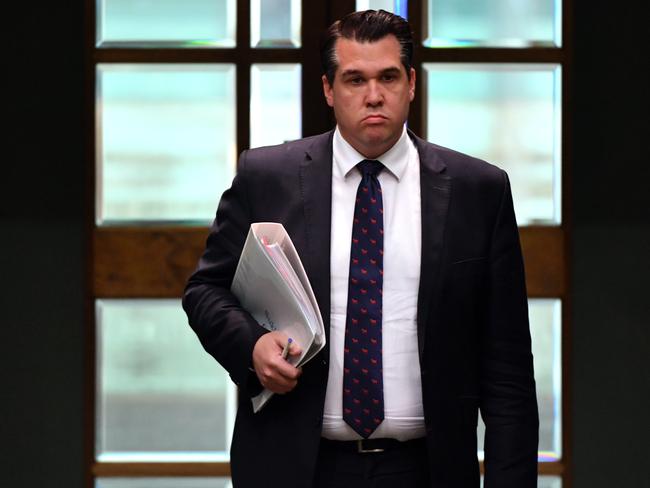
It has already produced a plan — it released draft legislation in 2017 which has since gone nowhere.
The problem isn’t a lack of support. Labor and two crossbenchers have each tabled the government’s draft in unsuccessful bids to get action.
Meanwhile, research I believe will be released later this month will show for the first time that more than $1 billion a year of loans are being written.
From what I’ve heard, the government has been persuaded by the view that the draft legislation would swing the pendulum back too far in favour of customers.
Assistant Treasurer Michael Sukkar hasn’t said this, but did tell me the government “recognises that small amount credit lenders and consumer lease providers plays an important role by providing credit to consumers who, in many instances, are unable to access mainstream forms of finance”. If the draft is substantially changed it may not pass at all — a result that the industry would cheer.
There needs to be a compromise everyone can live with.
